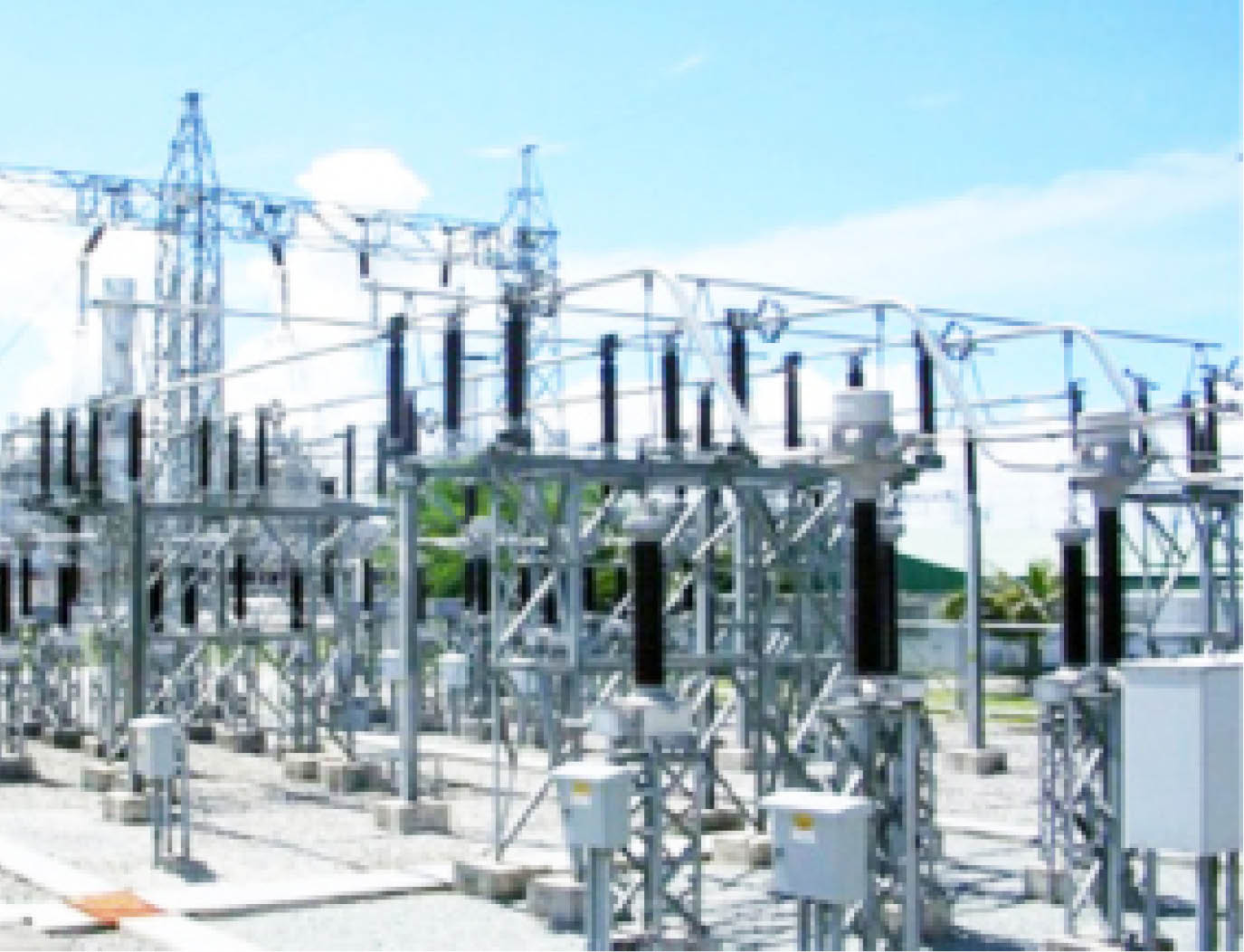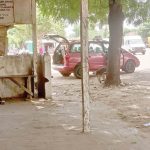Nigerians have continued to pay for power supply but have not seen enough of that in the past five years, with electricity tariff rising as economic indices worsen.
Although the power sector was privatised on November 1, 2013, to turn the situation around, there have been arguments that power supply had worsened when compared to the time of the National Electric Power Authority (NEPA)/Power Holding Company of Nigeria (PHCN).
The 11 distribution companies (DisCos) got the target to invest in power assets by reforming them and improving supply for their about six million customers then.
- Days of mindless criminality in Imo over – Uzodimma
- Abduction: Protesters cause gridlock on Kaduna-Abuja Highway
While the customer base has improved to over 10 million, according to enumeration records submitted to the Nigerian Electricity Regulatory Commission (NERC), power outages, rationing and low voltage are still prevalent among consumers.
Analysis of revenue collection by the DisCos in 2019 shows that they improved the Nigerian Electricity Supply Industry (NESI) yearly collection by N39 billion, reaching a total of N485 billion, with a collection efficiency of 69 per cent.
According to revenue records released by the Association of Nigerian Electricity Distributors (ANED), by the first quarter of 2020, DisCos had realised N127bn, which was over 10 per cent improvement than their quarterly collection of 2019.
Although there were disruptions from the second quarter of 2020, some of the DisCos’ financial dealings showed they had improved on their collections.
Recently, a core investor in the Abuja DisCo said its revenue collection from electricity consumers had increased to N9bn from N6bn in 2019. But despite these collection improvements, power consumers said they were yet to see significant improvement in supply.
Rising tariffs, declining supply
Nigeria has had at least seven reviews of the Multi-Year Tariff Order (MYTO) between 2015 and 2020, according to records obtained from the NERC.
As of December 2015, residential consumers paid an average of N11.70 per kilowatt-hour (/kwh) before it was raised to about N24/kwh, with commercial residents paying from N27/kwh.
According to the MYTO rule, the NERC does a biannual review of the tariffs, with the possibility for an increase or decrease in the unit cost of electricity for mostly residential, commercial and industrial customers.
The NERC reviews the tariff based on changes in inflation, foreign exchange rate, gas price, available generation capacity, and the Capital Expenditure (CAPEX) required by the Transmission Company of Nigeria (TCN) and the 11 DisCos to evacuate and distribute the available generation capacity.
According to figures released by the National Bureau of Statistic (NBS), since 2015, the economic indices have been rising, with inflation reaching 18 per cent in March, and for the forex, a dollar has exchanged for over N400 since 2015 in the parallel market.
Gas price has been static at $3.80 but power generation and distribution capacity, which ought to have gone past 10,000 megawatts (MW) as at 2020, according to the MYTO, has not moved beyond being 5,801.60MW attained in February 2021.
The MYTO stated that the higher the power generation and distribution, the lower the tariff could be.
Similarly, the lower the economic indices of inflation and forex, the lower the tariff. However, the records show that these indices were higher since 2015 while power grid capacity only slightly moved from 4,500MW all-time peak to 5,801MW this year.
Due to the effects of the high tariff, the NERC had suspended the increase in tariff since July 2016 when another increment was due.
The DisCos had accused the NERC of being political by not allowing a cost-reflective tariff.

The spokesman of ANED, Sunday Oduntan, said the freezing of tariff hike caused the electricity market a shortfall of over N2 trillion.
However, in 2020, the NERC began implementing the electricity tariff, with one implemented in September 2020, drawing public outcry after tariffs rose by about 50 per cent.
By January 1, 2021, another tariff hike was made, but it was greeted, with critics with the organised labour protesting it.
In late April, the NERC announced the review of another electricity tariff, which could be implemented by July 2021, barring any directive from the Presidency.
If there is no further subsidy, with about N50bn being spent monthly currently, there could be a significant rise in tariff.
Payment for darkness
Just as the NERC had said after stakeholders’ consultation on the tariff review in 2020, some consumers who spoke to our reporter said they were ready to pay the commensurate cost for the power they consumed but not be fleeced for the energy they don’t even see.
Mr Balogun Mauruf, a residential customer of Abuja DisCo in Nyanya, Abuja, said he would prefer that all Nigerians have a meter and could measure what they consume and pay for such.
“If not for the capping of the estimated bill around here since 2020, there were people who paid over N20,000. And the government has refused to liberalise the metering process so that anyone can buy and install meters,” he said.
John Akonbo, who resides in Mararaba town of Nasarawa State, near Abuja, also complained about the ever-increasing bills without adequate power.
Akonbo said, “There are times we go two days to a week without power supply in my area, and you would not have anyone to explain.
“However, if the Abuja Electricity Distribution Company (AEDC) officials come and can’t find your evidence of bill payment, they will yank of the light immediately. That is not fair to consumers because we are paying for darkness.”
Daily Trust on Sunday reports other comments from electricity users across the country.
In Kano, Mr Peter Aboki, who operates a welding workshop at Tinshama quarters in Nassarawa Local Government, said electricity supply had dropped while tariff increased this year.
He said the Kano Electricity Distribution Company (KEDCO) issued a bill recently with come customers getting N280,000 monthly.
A cottage rice mill operator, Alhaji Ahmadu Makama, also said power supply had dropped for two months.
Mustapha Hassan, a lawyer in Kaduna State, said the current power supply had not improved.
He is, however, better with meter as his bill dropped from N30,000 (estimated) to N15,000 with meter monthly. “I think I am better for it with the prepaid meter.”
Gideon Godwin, who operates a restaurant around Mogadishu in Kaduna city centre, also complained of poor supply.
“I use the prepaid meter, but by the time you recharge N1,000, it is gone in two days and you will have to recharge again because the meter runs very quickly,” he said.
Also, Stanley Ebuka, an entrepreneur at the Alaba International Market, Lagos pays N1,000 a month on electricity for his shop with poor supply.
He, however, pays another N2,000 for fuelling generator, while also using solar.
Another entrepreneur, Michael Umeh, pays N1,400 monthly for his shop but hardly gets light. “And we still have to pay anyway.
“I have been here for about eight years and the situation has been the same for a very long time,” he said.
Experts seek solutions
The chairman of the Nigeria Electricity Consumers Advocacy Network (NECAN), Tomi Akingbogun, said electricity consumers were simply ignorant of what is going on, saying the government was increasing electricity tariff just to meet World Bank requirements at the expense of its citizens.
“Because of World Bank’s $760million loan, we are ignoring the chances to develop our economy through small scale businesses,” he said.
He called on fellow customers to ask their DisCos the rationale for a tariff increase. “In an enlightened environment, every citizen will be in the streets for a peaceful demonstration against it,’’ he also said.
The president of the Nigeria Consumer Protection Network (NCPN), Kunle Kola Olubiyo, in an open letter to the NERC, stated, “We are constrained to write to you and crave your indulgence to calm down, slow down and halt the drift.
“The timing of another increase in electricity tariff in Nigeria is ill-advised and unacceptable to consumers/all classes of electricity end-users in Nigeria.
“We had expected that the regulator would have allowed the impact of the January 2021 major tariff increase to settle down.”
Reacting, the director-general of the Lagos Chamber of Commerce and Industry (LCCI), Dr Muda Yusuf, lamented that the reviews were coming in quick succession.
He said the NERC needed to observe a balance between commercial logic and the prevailing economic situation while urging the DisCos to accelerate metering.
On his part, a professor of the capital market, Uche Uwaleke said, “Without prejudice to the merits of having a cost-reflective tariff, the time is not just right to increase electricity tariffs. The conditions on precedent have also not been met.
“It is clear, even to the blind, that further hike in electricity tariffs will aggravate the cost of production, and by extension, the cost of living for the ordinary Nigerian and increase poverty levels.”
A public sector economist at Pan Atlantic University, Dr Olalekan Aworinde said, “To be completely honest, the tariff increase is not a bad idea, but the timing is wrong.
“Our current tariff is one of the lowest in Africa and our distribution companies are running at a loss.”
He said Nigerians were ready to pay when they get value for the money. “An increase in energy price will have a multiplier effect on several other things, and the bug will be passed to the common man,’’ he added.
When contacted earlier, the senior special adviser to the president on infrastructure, Ahmad Rufai Zakari, who spoke to Daily Trust on Sunday on these issues, said the federal government was mindful of the situation and still subsidising electricity for the poorer masses.
He also said the NERC was empowered by the Electric Power Sector Reform Act 2005 (ESPRA) to do the periodic electricity tariff review.
Zakari noted that it was left to the federal government to decide on what to do, especially at a time the country is facing harsh economic condition.
“Don’t forget that the tariff rates for Band D and E customers have not changed and the government has continued to pay subsidy on that,” he added.
By Simon E. Sunday (Abuja), Ibrahim M. Giginyu (Kano), Lami Sadiq (Kaduna), Christiana T. Alabi, Yvonne Ugwuezuoha & Sunday M. Ogwu (Lagos)

 Join Daily Trust WhatsApp Community For Quick Access To News and Happenings Around You.
Join Daily Trust WhatsApp Community For Quick Access To News and Happenings Around You.


